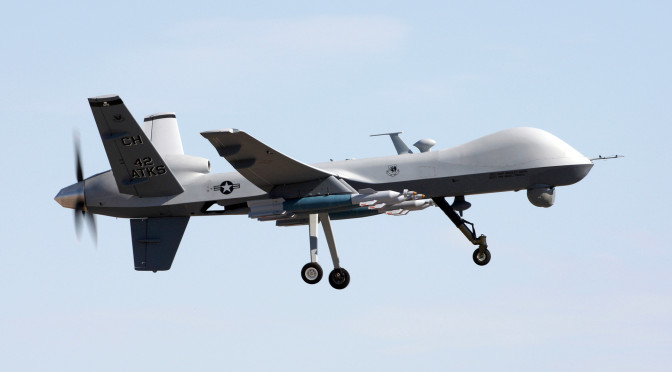Although drones are already being used on a daily basis in war zones (in some countries the noise of their rotors is a daily experience), they still are piloted by humans. Drones allow technological advanced countries to move their armies within minutes to locations all around the world, an important point in the upcoming oil wars, that this author is predicting for the near future too. It also allows more conflicts than the people of those nations usually tolerate, as own casualty numbers can be kept low.
Google already has an AI that can drive a car through normal traffic. A task that actually is more complex than flying a drone in a war zone. We have algorithms that can recognize human faces and voice. Soon robotics and artificial intelligence will be capable enough for those drones to make decisions no longer controlled by humans. This will give them several seconds of advantage over their foe. An advantage, that will become necessary, when drones fight other drones. Will we allow them to decide about taking a human life?
This blog is about trying to predict the near future. With near we mean 25 years, a quarter of a century. Trying to predict more is bound to be too far off to be of any practical meaning. So, although we believe that drones eventually will be allowed to make decisions of ending a human life (simply because the past has taught us that what is technically possible and will change the balance of power, will eventually happen), I hope and believe that this will be not within the next quarter of a century.
Humans still will have to approve an engagement command, very similar to human pilots drones will have to wait for this command. But we will probably soon have drones that given this command will be able to decide how to aim and to pull the trigger. The next generation might be able to seek and destroy without human intervention, staying within a specified radius of course. Will these drones be able to distinguish children from adults? Probably not so soon. Will they be able to detect fear or a threatening situation, distinguish an ape from an old woman or a Shepard? Probably not, but pilots looking on a screen through a camera probably also not. This engagement command will at first not be allowed in their own country of course, but outside, to prevent terrorism? It will happen, because it still will feel better than sending your son to war.
